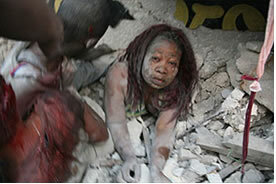In August 1945, the world experienced the devastating effects of a nuclear bomb. On that occasion, the United States of America (USA), to demonstrate its military power, dropped nuclear bombs on the Japanese cities of Hiroshima and Nagasaki. The consequences were dire: environmental disasters, hundreds of thousands of people died, burns, blindness, deafness and cancer developed.
Faced with the destructive effects of nuclear weapons, the victorious countries of World War II, using the speech of inhibiting the expansion of these weapons, were primarily responsible for drawing up the Non-Proliferation Treaty Nuclear (TNP). This treaty was signed in 1968 and came into force in 1970, currently having 189 countries.
According to NPT rules, only nations that exploded the atomic bomb before 1967 are entitled to possess this type of weapon. These countries are: United States of America, Russian Federation (which succeeds the Union of Soviet Socialist Republics), United Kingdom, France and China. Ironically, they are the five countries with voting power on the United Nations Security Council.
These “privileged” nations can maintain their nuclear weapons, however, it is extremely prohibited to supply both bombs and manufacturing technology to other countries. Another requirement established by the TNP is that the nuclear arsenal must be reduced, but this was never put into practice by any of the atomic bomb holders.
Do not stop now... There's more after the advertising ;)
The other nations on the planet, which did not explode atomic bombs before 1967, commit themselves, as signed in the NPT, never to produce such weapons. However, they can develop nuclear technology, as long as it is for peaceful purposes, such as for the production of electricity. These projects, however, must pass inspection by the International Atomic Energy Agency (IAEA) and, if something goes wrong, the project is forwarded to the UN Security Council.
Regarding the countries defeated in World War II, mainly Germany, Italy and Japan, the Nuclear Non-Proliferation Treaty established even stricter rules on enrichment of uranium. However, the relations of these countries with those that make up the UN Security Council have stabilized, a fact that reduced the “persecution” of their nuclear projects.
Importantly, some nations have not signed the treaty and have atomic bombs, such as India, Pakistan and Israel, which it does not officially confirm. North Korea, in turn, withdrew from the treaty and is another country that has nuclear weapons. Currently, the greatest concern is with the Iranian nuclear project, which many believe is for war purposes.
By Wagner de Cerqueira and Francisco
Graduated in Geography
Brazil School Team
Curiosities - geography - Brazil School
Would you like to reference this text in a school or academic work? Look:
FRANCISCO, Wagner de Cerqueira e. "Nuclear Non-Proliferation Treaty | TNP"; Brazil School. Available in: https://brasilescola.uol.com.br/geografia/tnp.htm. Accessed on June 29, 2021.


